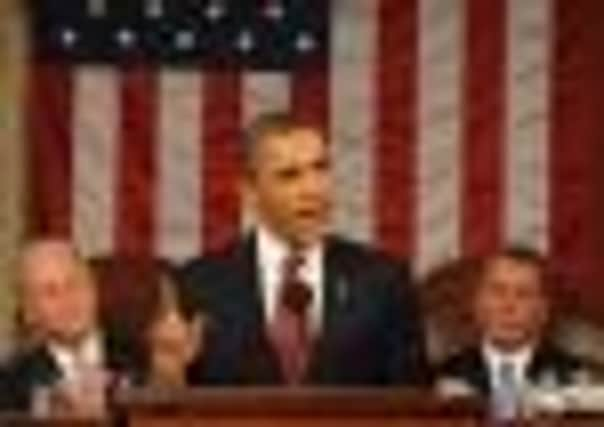US repossessions deal £25bn slap in face for homeless, says campaigner


In a deal with all but one US state, five major lenders have agreed to a $25 billion (£16bn) pay-out after being held to account for abuses during the housing collapse.
Hundreds of thousands of households will see loan repayments reduced under the agreement, with 750,000 families compensated for being wrongfully evicted by banks.
Advertisement
Hide AdAdvertisement
Hide AdPresident Barack Obama yesterday said the deal helps turn the page on “an era of recklessness” and would give immediate relief to needy homeowners.
However, others complained that the states should have held out for a far higher figure, calling compensation cheques of $2,000 for wrongfully evicted families a “slap in the face”.
The agreement represents the largest industry settlement in the US since a mammoth 1998 deal with tobacco firms over public healthcare costs.
It follows months of negotiations between banks and federal and state officials over malpractice by lenders in the years after the housing bubble burst.
In a rush to foreclose on customers, homes were repossessed by lenders using false or incomplete documentation.
In some cases, signatures were forged or penned by people who had not even read the eviction papers – a process known in the US as robo-signing.
Banks were also found to have used deceptive practices to increase mortgage repayments and then failed to offer homeowners alternatives to repossession when repayments could not be met.
Under the agreement, Bank of America, JPMorgan Chase, Wells Fargo, Citigroup and Ally Financial have agreed to cut loan rates for one million households.
Advertisement
Hide AdAdvertisement
Hide AdIt will allow so-called “underwater” borrowers – those who owe more than the value of the house due to falling property prices – to refinance their loans. Around one in five US mortgage-holders is in negative equity.
In return, 49 states have agreed not to pursue civil charges against the banks.
However, individual homeowners can still sue, and both state and federal authorities have not ruled out criminal action in relation to mortgage fraud.
The Midwest state of Oklahoma is the only one to hold out against the deal and, as such, could still launch civil proceedings against the banks.
President Obama praised the deal as a “major step”, but acknowledged that for some, the compensation would be too little, too late.
Some consumer campaigners were less than enthusiastic about the deal.
Jordan Estevao, campaign director of National People’s Action, said: “It is not enough. Twenty-five billion dollars sounds like a nice figure, but it is a very small drop in a very large bucket.”
He added: “A cheque of $2,000 to a family that has been forced out of their home is really a slap in the face.”